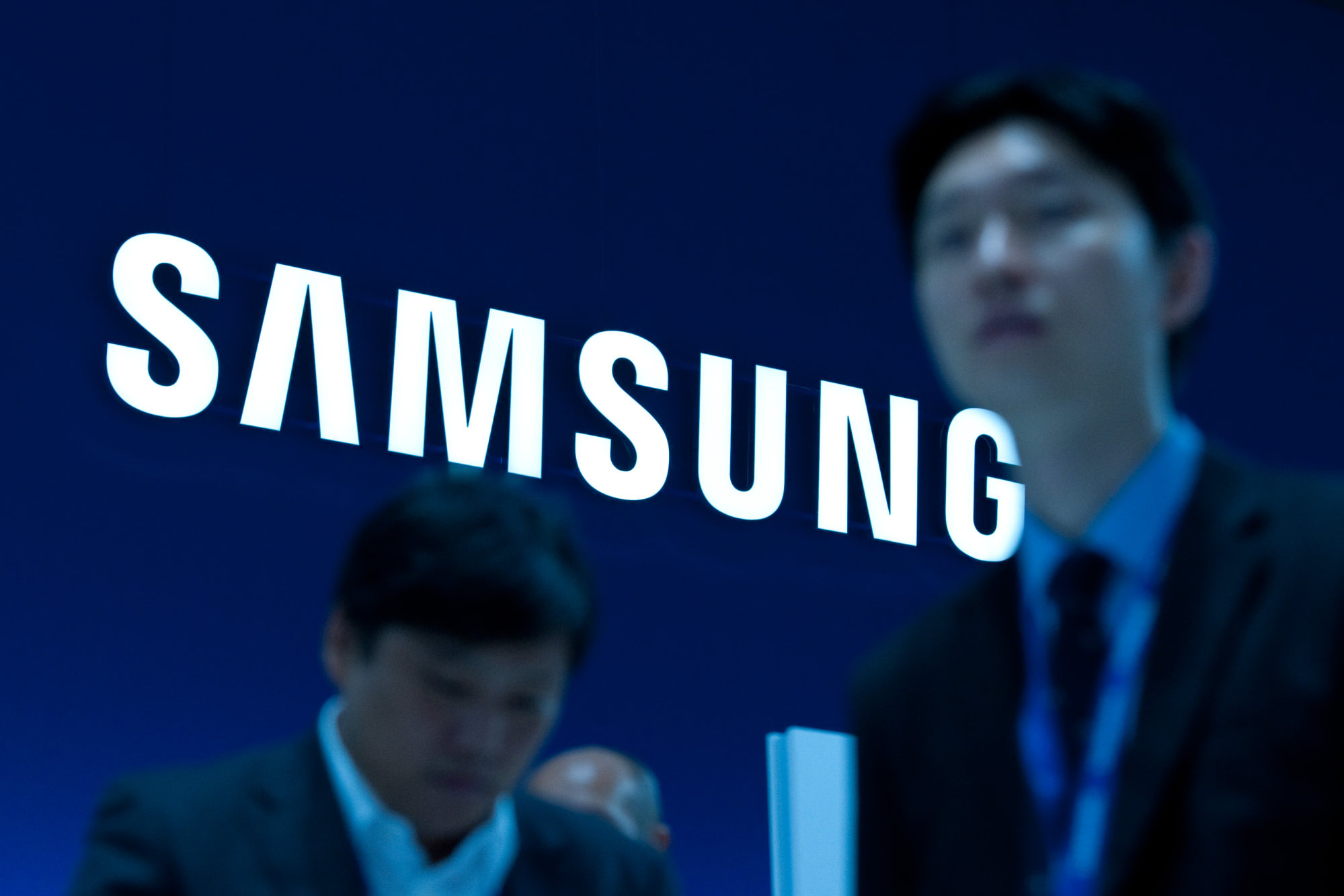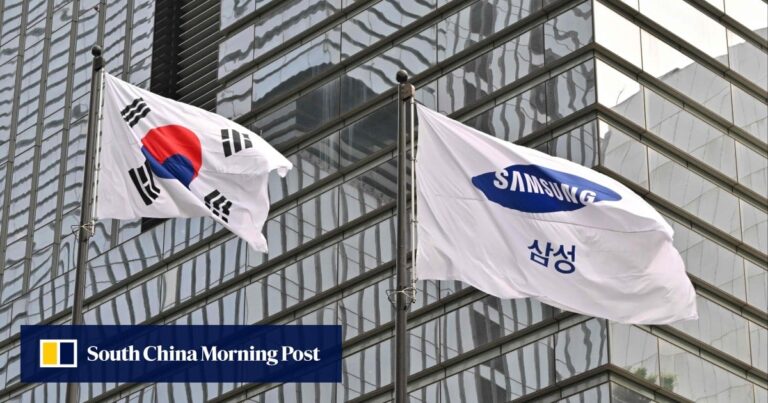Samsung Electronics has announced several upcoming advancements in its technology aimed at attracting artificial intelligence (AI) chipmakers to its manufacturing operations.
Samsung is the world’s No. 1 memory chip maker but is trying to catch up with rival Taiwan Semiconductor Manufacturing Co. (TSMC) in the foundry market, which makes customer-designed chips. Samsung held its annual Foundry Forum on Wednesday at its U.S. chip headquarters in San Jose, California, where it unveiled its chip-making roadmap and outlined its vision for the AI era.
According to TrendForce, Samsung’s share of the foundry market fell to 11% in the first quarter of this year from 11.3% in the previous quarter, while TSMC’s share rose to 61.7% from 61.2% in the same period.
Revenues at South Korean semiconductor makers are recovering, buoyed by demand for components used in AI computing systems, which is bolstering their main memory chip division and creating outsourcing opportunities.
But Samsung needs to prove its production is advanced and reliable enough to attract bigger commitments from demanding customers such as Nvidia, which makes the AI accelerators that are essential for all big tech companies. Samsung also faces a new challenge from Intel, which is opening factories there to try to win orders from its old rival.
Advances in manufacturing technology, typically signified by smaller and smaller transistor dimensions, help improve the performance of electronic components. The race to shrink dimensions is key to winning orders for AI processors, which are among the most powerful and expensive chips in use today.
The advanced process introduced by Samsung employs so-called backside power delivery network technology, which places the power rails on the back side of the silicon wafer, a technology that the company says improves power, performance and area while significantly reducing voltage drop compared to the first-generation 2-nanometer process.

Samsung also argues that its ability to provide logic, memory and advanced packaging will help it fast track winning outsourced semiconductor manufacturing orders for AI-related chips.
The company on Wednesday predicted that its AI-related customer list will grow five-fold and revenue will grow nine-fold by 2028. The company unveiled several new types of manufacturing techniques and layouts for future AI-related chips that it says will help it win over customers.
Samsung executives declined to comment on the status of efforts to supply Nvidia with advanced memory chips or respond to reports that the company has not yet achieved certification for such chips with any U.S. company.
Samsung also touted its gate-all-around (GAA) technology, which is key to AI products. The company plans to mass-produce its second-generation 3nm process later this year and realize GAA in its next 2nm process. In 2022, Samsung will be the first in the industry to start mass production of GAA-based 3nm.
The company confirmed that its 1.4nm readiness is progressing well, with performance and yield targets on track for volume production in 2027.

